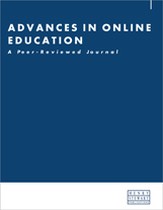Playful paragogy: Best practices for using memes for peer-led teaching and debriefing in an undergraduate curriculum
Abstract
Internationally memes are increasingly being used in medical education to teach students. They are used as a tool to help students learn and remember complex medical concepts but are seldom used to help students debrief after difficult clinical experiences. Moreover, the medical curriculum tends to be delivered in a serious, content-heavy method that leaves little room for this type of creativity, fun and playfulness. Ludic pedagogy and paragogy offer an alternative approach to teaching and interaction and are based on fun, playfulness and student-led interaction within the boundaries of academic rigour. This best practice paper describes the alternative approach the authors used to create a playful, yet important opportunity for student debriefing during a highly stressful period. Method: fifth-year medical students were tasked with a non-graded assignment to create memes that reflect the content of the teaching and the rotation at the local medical clinics. There were no restrictions placed on the visual themes and students had the freedom to explore various sources for images and inspiration. After submission, a competition was launched, and students had the opportunity to discuss the memes and then vote for the best ones. A small cash prize was offered to the winner. Data analysis: after submission of the memes, a thematic analysis (based on the steps created by Creswell and Creswell1) was conducted to identify recurring topics and themes. Six themes were identified namely: view of faculty, online teaching in a pandemic, content taught, view of family medicine as a discipline, clinical interaction and mental health. These themes were then categorised into either content, context or process. Results and discussion: the students diverted from the original assignment where the instruction was to focus on content; however, the memes frequently alluded to aspects that mirrored the students’ current state of mind and their concerns. But it also reflected their humorous take on the content and context. The memes were indicative of the students’ need to air their views in a playful, yet safe environment and the need for frequent debriefing interventions in a serious curriculum and a stressful situation. This best practice paper/project provides evidence of not only the possibilities, but also the dire need to engage with students during turbulent times, in a different, yet rigorous way and to provide a safe environment for the much-needed emotional support and debriefing to support students in navigating challenging clinical situations.
The full article is available to subscribers to this journal (subscription is free).
Author's Biography
Owen Eales MBChB, FCFP, Mmed (FamMed) is a Senior Lecturer in family medicine at the University of Pretoria. He is passionate about teaching and learning and is willing to embrace new and innovative teaching approaches. He has integrated the use of various technology platforms in teaching medical students and doctors. Due to the fact that he specialised in family medicine later in life, he has quite recently been a student himself and knows what helps and what hinders the learning process. He has learnt to laugh at himself and sees the value of using humour in the teaching of students.
Irene (Jc) Lubbe Irene Lubbe is an education and curriculum specialist, researcher, workshop facilitator and conference presenter with a passion for alternative teaching, facilitation and assessment. She believes that learning should be engaging, fun and authentic for the student, and therefore supports her PhD students and faculty members in exploring exciting and alternative ways to facilitate learning among their students and to create alternative ways for students to showcase application and mastery of their newly acquired knowledge and skills. She further combines her passion for alternative teaching and assessment with the scholarship of teaching and learning (SoTL) and gears her research projects in that direction with the aim to involve faculty members in SoTL activities and collaborate across departments, institutions and continents. She often participates in conferences as a presenter or workshop facilitator.
Citation
Eales, Owen and Lubbe, Irene (Jc) (2024, March 1). Playful paragogy: Best practices for using memes for peer-led teaching and debriefing in an undergraduate curriculum. In the Advances in Online Education: A Peer-Reviewed Journal, Volume 2, Issue 3. https://doi.org/10.69554/VMTN8269.Publications LLP
